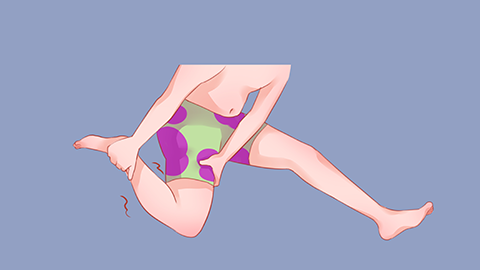What are the causes and solutions for leg cramps?
Generally, leg cramps may be related to strenuous exercise, cold exposure, hypocalcemia, lumbar disc herniation, lower extremity arterial occlusive disease, hypothyroidism, etc. Usually, these can be relieved through rest, keeping warm, nutritional supplementation, and medication. If abnormalities occur, timely medical attention is recommended. Detailed explanations are as follows:

1. Strenuous exercise: During intense physical activity, frequent contractions of the calf muscles and the accumulation of local metabolic byproducts may cause leg cramps. It is recommended to warm up adequately before exercising and to stretch the calf muscles appropriately afterward to reduce the occurrence of cramps.
2. Cold exposure: Cold stimulation to the calf increases muscle excitability, causing tonic contractions and resulting in cramps. It is important to keep the calves warm and avoid prolonged exposure to cold environments. Applying heat can help alleviate muscle discomfort after cramps.
3. Hypocalcemia: Low concentration of calcium ions in the blood increases neuromuscular excitability, leading to calf cramps, often accompanied by symptoms such as hand and foot spasms, numbness, and bone pain. Treatment mainly involves taking medications such as calcium carbonate D3 tablets, calcium gluconate tablets, and calcitriol capsules as directed by a physician.
4. Lumbar disc herniation: Herniated lumbar discs compress nerve roots, causing abnormal nerve conduction and resulting in calf cramps. This is often accompanied by symptoms such as lower back pain, numbness in the lower limbs, and radiating pain. Doctors generally recommend treatment with medications such as celecoxib capsules, mecobalamin tablets, and eperisone hydrochloride tablets.
5. Hypothyroidism: Insufficient secretion of thyroid hormones leads to slowed metabolism and abnormal muscle excitability, causing calf cramps. Symptoms often include cold intolerance, fatigue, weight gain, and dry skin. Treatment should follow medical advice to use medications such as levothyroxine sodium tablets, thyroid extract tablets, and Jin Kui Shen Qi pills.
In daily life, maintaining a regular routine, engaging in appropriate physical exercise to strengthen muscles and improve endurance, and ensuring a balanced diet rich in calcium and vitamins can help reduce the occurrence of calf cramps. If cramps occur frequently or are accompanied by other discomforts, prompt medical evaluation is necessary to identify the underlying cause and receive targeted treatment.







